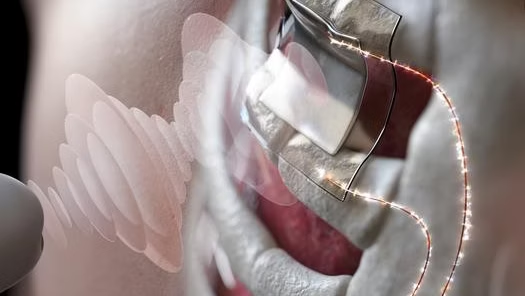Ultrasonic wireless charging for implanted medical devices

Korea University collaborates with KIST to enhance biocompatible ultrasonic receivers, enabling efficient power transfer for medical devices.
New find: Chimpanzees are capable of complex communication

Max Planck Institute researchers uncover chimpanzees combining different calls to create new meanings, similar to humans.
Can plants hear their pollinators?

University of Turin researchers discover plants increase nectar production in response to specific pollinator buzzing sounds.
Why electric aircraft engine noise grinds our gears

University of Bristol scientists discover how turbulent flow in boundary layer ingesting (BLI) engines creates unpleasant noise, suggesting potential solutions.
More social parrots have a better vocabulary

Max Planck Institute researchers find that monk parakeets’ vocal diversity is influenced by their complex social interactions.
Particle-armoured liquid robot can pass through metal bars

Created at Seoul National University, the ultrasound-driven droplet-shaped robot also transports cargo, with potential medical uses.
Your cells can hear

Kyoto University researchers discover that acoustic waves can influence cellular activities, revealing new insights into mechanobiology.
Scientists find unique sound alleviates motion sickness

Researchers at Nagoya University discovered that a specific 100 Hz sound frequency can alleviate nausea and dizziness in motion sickness.
Fruit, fibre, dairy and caffeine may prevent tinnitus

Chinese researchers highlight 14% worldwide tinnitus prevalence but say more evidence is needed to confirm diet link.
Sound whirlpools used to break up kidney stones

Polytechnic University of Valencia scientists have halved the time it takes to break up kidney stones in ex vivo tests.
